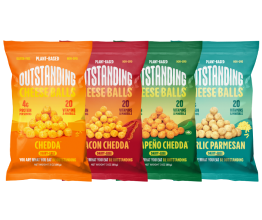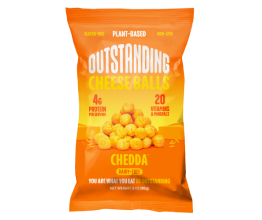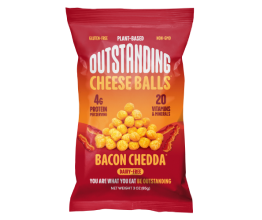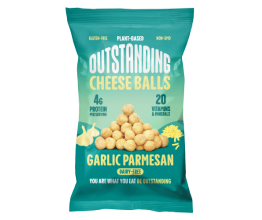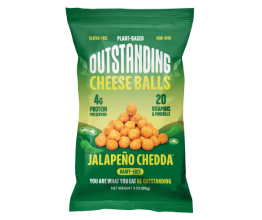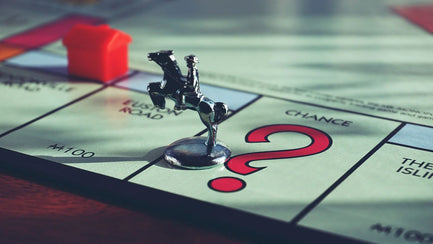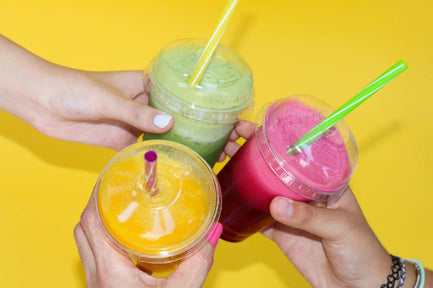How to Stop Snacking on Junk Food
Stroll through the grocery store, flip the channels on TV, and scroll social media for just a few minutes, and you’ll see junk food front and center no matter what.
More than any other time in history, junk food is more accessible to the masses, and marketing efforts have gone into overdrive. The packaging is irresistible, the prices are low, and when you dig in… yum.
But on the other side of that snack attack, we face the consequences in the short and long terms. We know that junk food is bad for us inside and out, but we can’t seem to stop.
Is there a way to stop snacking on junk food once and for all? What if there was a way to satisfy our cravings for a junky snack but actually eat something that benefits our health and gives us the nutrients we need?
Let’s get into the nitty-gritty about junk food and answer these questions so that you can live a healthier life without making painful sacrifices.
The Truth About Junk Food
Nobody likes to be a Debbie downer, but when it comes to a subject like junk food, the truth needs to be revealed.
Times are changing, and the more people who know about junk food’s dark side, the healthier we’ll be as individuals and society at large. Just think about a few short decades ago when doctors told us smoking was a healthy habit!
Here are a few points for you and your besties in the group chat.
Nutritional Value
You’ve heard the term “empty calories” before, and that’s exactly what you get when you rip open a bag of greasy chips or a sugar-loaded candy bar.
What is an empty calorie? Think of it as the lowest-quality fuel for your body that burns the fastest and gives you the least amount of energy. Sure, you might feel good for a few minutes after a sugar rush or carb overload, but the crash is always just around the corner. We want to take a nap just thinking about it.
You’re also missing out on quality nutrition when you partake in junk food since these items typically contain no protein, no healthy fats, and no micronutrients. The starches tend to be “fast carbs” that don’t give you sustained nourishment or energy.
In the long run, junk food can end up causing problems like diabetes, hypertension, and even damage your DNA and immune system. If you want to age gracefully and stay free of ailments in your golden years, keep it to a minimum.
Additives and Preservatives
Even if a snack seems to check a few boxes on the nutritional panel, you still might be getting some unwanted intruders in the form of additives, preservatives, and artificial flavors or colors.
Not all of these extras are inherently bad, but if an ingredients list is reading more like a dissertation for a Nobel Prize in Chemistry, you’re probably not doing your body any favors.
A few preservatives you want to blacklist are sodium nitrite, sodium nitrate, BHA, and BHT. These are common in many processed meats like hot dogs and sausages and appear in sugary cereals, mass-produced pastries, candy, and even beer.
Also, keep an eye out for potassium bromate, which also goes by the codename “enriched flour.” Many countries have banned this item in recent years, but it’s still worth remembering.
Of course, you’ll want to steer clear of hydrogenated vegetable oils, high-fructose corn syrup, and other culprits like “numbered” food dyes in your snacks.
Simply avoiding this short list of ingredients can help set you on track to a healthier lifestyle without doing much research. Work smarter, not harder!
The “Bottomless Pit” Effect
The most devious part of junk food is that it’s highly addictive. Even if you keep your diet pretty clean from day to day, you might occasionally have a craving for a particular brand of chips or a candy bar from your childhood (hello, sugary cereal, and Saturday morning cartoons!).
The reason for this is a unique chemical makeup in these commercial items designed to maximize the taste and texture for our enjoyment – while health and nutrition take a backseat.
You know that opening a bag of chips or cookies means you’ll usually finish it, or at least keep eating until you’re not feeling straight-up awful. These foods convince our brains that we can just much away into oblivion, but reality soon catches up.
This is the mental aspect of junk food that is the hardest thing to address, but hopefully, our tips will help you introduce healthy and sustainable eating habits moving forward.
A Game Plan to Change
Are you literally fed up with junk food and ready to make a change for the better? Here are a few steps to follow as you make this super important shift.
Commit to Something Simple
We all know what happens when we try to go “cold turkey” or dive headfirst into a new lifestyle decision. Things might go well for a few hours or days, but eventually, the dam breaks, and we’re right back to where we started.
To avoid this rollercoaster experience, we suggest you start things off by making a commitment to cut out one type of junk food that does most of the damage.
For many people, a good first step is to stop “drinking calories,” meaning no fruit juices, sodas, or sugary coffees. These drinks are loaded to the brim with sugar, and you can consume a lot without feeling even remotely full.
Stick to water or sparkling water, and you’ll find that junk food cravings subside rather quickly.
Add More Healthy Habits
Once you start upping your water intake and break the cycle of sugar, you can start saying no to the cookies, the chips, the candy, and the other junky parts of your diet.
Remember that good habits, like bad ones, tend to compound with one another, meaning you are more likely to get physically active and improve your sleep hygiene.
Together, these habits will boost your productivity and reduce your desire for junk even more.
Put Full Effort into Meals
A big reason we crave junk food in the first place is that we miss out on well-balanced meals throughout the day. Putting more effort into breakfast, lunch, and dinner ensures you get the right nutrients to power your body and mind.
Yes, it takes a bit more planning and preparation to buy groceries and cook, but once you get into the groove, it becomes second nature like everything else, and the junk food cravings slip away.
Healthy Snacks that Taste Great
It’s easy to say, “just eat clean!” but that’s not so simple when it comes to snacks. Here are some healthy snack foods to rely on when you really need a boost of energy or just something to munch on while you watch that new Netflix show.
Fresh Cut Fruit and Veggies
Become a regular at the produce section and learn to love all the different types of fruits and veggies at your fingertips. Chop them up into bite-sized pieces and store them in the fridge, or take them on the road with you to work.
Protein-Packed Roll Ups
A piece of deli meat, a slice of cheese, and maybe a crunchy veggie in the middle: ugh, stop, we’re drooling! This simple snack is protein-packed and tasty.
Yogurt and Cottage Cheese
These snacks are underrated and deliver so much nutrition in every bite. Keep some containers in your fridge and buy mini-cups to take on the go.
Homemade Trail Mix and Bars
Lots of store-bought trail mixes are basically junk food, and the same goes for energy bars. You can make your own cheaply and know exactly what’s going into each batch.
Pork Rinds (Real or “Pigless”)
These snacks aren’t new, but they’re making a big comeback due to their low-carb, high protein profile. Pork rinds are puffed pig skin with just a bit of salt or seasoning.
If you like a bit of melty fat to contrast the major crunch of the pig skin, we suggest tracking down some cracklins to get that perfect balance.
Alternatively, try some PigOut Pigless Pork Rinds that are totally vegetarian and contain all the protein you want from a snack. Plus, the flavors are top-tier.
Healthy Puffs
If your mind is wandering to a bag of classic puff snacks, try our Outstanding Puffs instead of hitting the vending machine. They taste great, pack that satisfying crunch, and will leave you feeling satisfied instead of empty.
In Conclusion
Leaving junk food behind won’t happen overnight, but with these tips, you can make that commitment for a healthier lifestyle starting now.
Sources:
Top 15 healthy foods you should be eating | UC Davis
Which foods don't belong in a healthy diet? | Harvard Health
How Food Addiction Works (and What to Do About It) | Healthline
